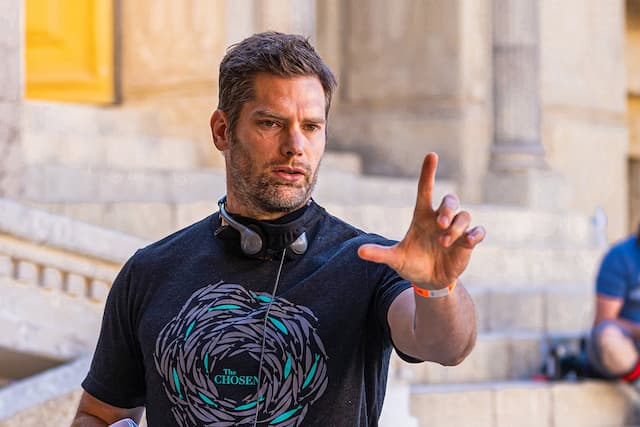The Jekyll and Hyde Christian
Many Christians think that living a consistently obedient life—a good life, a pure life, a holy life—is bound to fail, even for a Christian.
The standards, they think, are too high, the opportunities to sin are too many, the flesh is too strong. Some Christians even say they can’t make it through a day without sinning.
A major contributor to our losing battle against sin is the belief that we have two natures—one good and one bad.
Each of these natures, it is believed, alternately and frequently expresses itself.
People may not want to sin, yet frequently they do. And the main reason they do is because of this ongoing conflict between the old nature and the new nature.
To be stuck in this kind of thinking is to operate with diminished efforts, to accept reduced goals, and succumb to moral defeat.
Those who believe a believer has two natures—one good and one bad—are going to behave the way they believe.
In 1885 Robert Louis Stevenson wrote, The Strange Case of Dr. Jekyll and Mr. Hyde.
Convinced of the dual nature of man, the author created a character, Dr. Henry Jekyll, who, in the author’s estimate, wasn’t as strange as some people think.
Jekyll invented a drug that could change a man from good to bad, and another drug that could completely reverse this change.
Using these drugs to experiment on himself, Jekyll produced a very bad man, whom he called Edward Hyde.
While in a drug-induced state, Hyde committed multiple crimes, even murder. But no one ever suspected Hyde.
That’s because he turned back into Jekyll, this well-regarded doctor who kept company with intellectual elites. His immaculate appearance and refined speech seemed to ward off suspicion.
After a while, the drug wasn’t needed for Jekyll to become Hyde.
The evil side of this man’s nature began to dominate, so that by the end of the story the good doctor died as the evil Edward Hyde lived on.
Those who think Jekyll and Hyde depict human nature even after one becomes a Christian do much damage to themselves.
Their belief becomes a self-fulfilling prophecy.
To say a man has two natures makes no sense, biblically. For either a man is regenerate or he is unregenerate; he is not both.
Yet, because this two-natures view prevails in the church today, the call to holiness is muffled, muted, stifled, and eventually silenced.
A.B. Simpson said, “This contentment with inadequate and imperfect progress in the life of holiness is, I repeat, a scandal to the church of the First-born. The whole weight of Scripture is against such a thing.”1
Continuing his commentary, Simpson observed, “Our error today is that we do not expect a converted man to be a transformed man, and as a result our churches are full of substandard Christians.”2
Even Seneca, the Roman philosopher, said, “I would I were not so much bettered as transformed.”3
It is regrettable that this aspiration of a Stoic has not taken hold in God’s church.
In his book, Paths to Power, A.W. Tozer wrote:
To any casual observer of the religious scene today, two things will at once be evident: one, that there is very little sense of sin among the unsaved, and two, that the average professed Christian lives a life so worldly and careless that it is difficult to distinguish him from the unconverted man.4
But what if a Christian told you he had a nature just like God’s, that he had escaped the corruption of this world, and that he now knew how to never stumble again in his walk with God?
Sound too good to be true?
Many people would dismiss such talk as the excited faith of adolescent theology, or as the ivory tower faith of a theologian more acquainted with theory than life.
But what makes these words entirely credible is that they come from a person who had made his share of bonehead blunders. The name of the man who said these things was Peter.
In his book, A Larger Christian Life, A.B. Simpson asserts, “There is no single paragraph in Scripture that more profoundly unfolds the depths and heights of Christian life than the first 11 verses of Second Peter.”5
Peter’s words are not the rash words of a religious fanatic but are eminently practical words, rooted in the realism of tested and proven faith.
Peter knew as well as anyone how fallible the flesh could be! He also knew, by experience, how formidable the enemy’s attacks could be!
What makes Peter’s words even more shocking to us are these staggering, almost unbelievable, assertions about having escaped the corruption that is in the world through lust.
Escaped? We don’t know anyone who escaped! They all struggle, and do so until the day they die.
So how did Peter overcome?
Peter tells us how by setting forth in this letter three factors: It is by having 1) divine power, 2) divine promises, and 3) a divine nature (II Peter 1:3, 4).
Now, if language means anything, and if Peter has any credibility, these words have to get our attention!
Why don't you read them for yourself? And while doing so, ask the Spirit of God to change your thinking so you can change your living.
A great encouragement for the progress you're about to make is the fact that the evil Dr. Hyde isn't there anymore.
Notes:
- A.B. Simpson, The Best of A. B. Simpson, (Camp Hill, PA., Christian Publications, 1987), p.37.
- Ibid., p.68.
- The Speaker’s Bible, The Second Epistle to the Corinthians, Edward Hastings, ed., (Aberdeen, Scotland, Turnbull & Spears, 1933), p.54.
- A.W. Tozer, Paths to Power, (Camp Hill, PA., Christian Publications, n.d.), p.39.
- A.B. Simpson, A Larger Christian Life, (Camp Hill, PA., Christian Publications, 1987), p.140.











